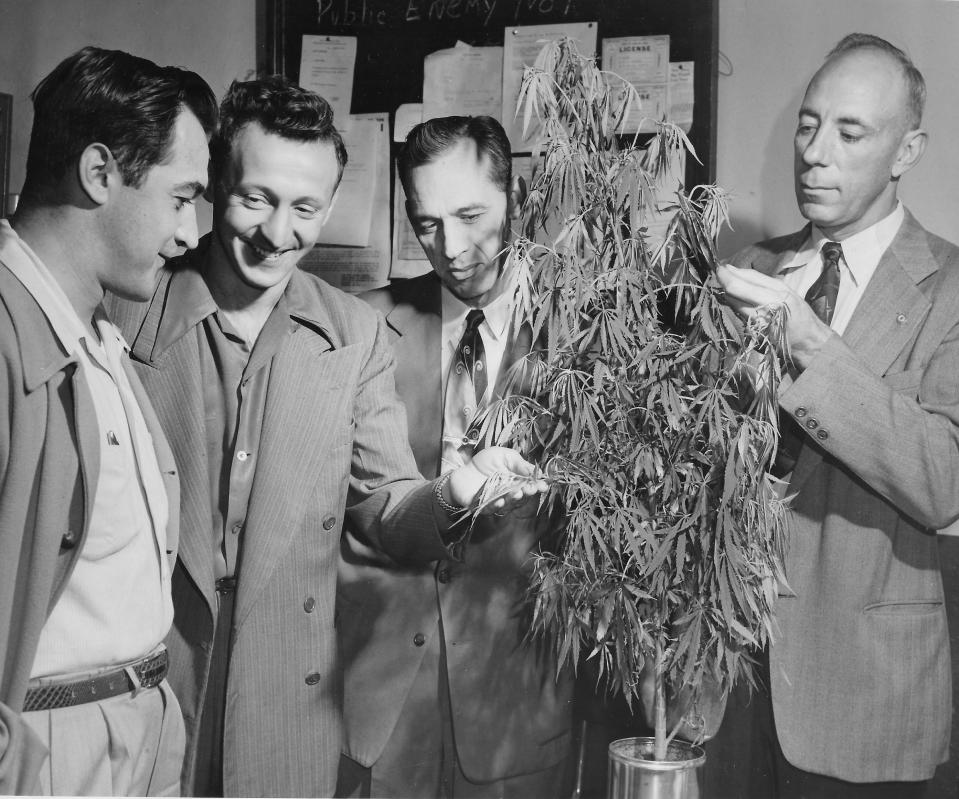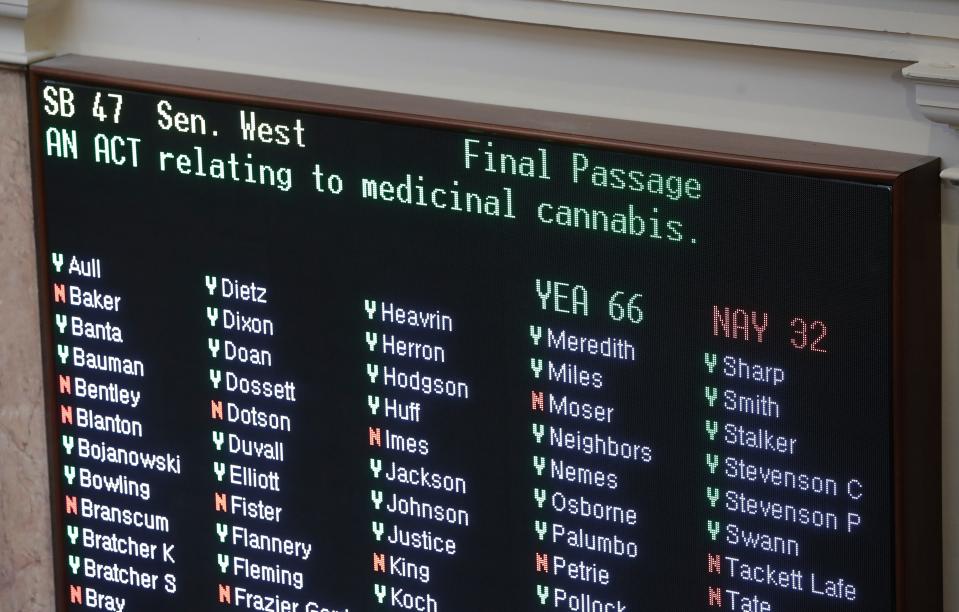Ohio's recreational marijuana law is taking effect. Here's what it means for Kentuckians

Dope, grass, reefer, herb, cannabis.
However you refer to marijuana, it's not legal for recreational use in Kentucky.
It will be in Ohio on Dec. 7, though.
Still, one thing is clear: It will be illegal to buy marijuana in Ohio and bring it back to Kentucky for consumption. (The same is true if you live in Indiana.)
Here's what to know about Ohio's new law:
How does Ohio's marijuana law work?

Ohio's recreational marijuana program legalizes and regulates the cultivation and sales of marijuana to people ages 21 and up. It also legalizes home grow for Ohioans, with the same age restriction, with a limit of six plants per person and 12 plants per residence.
The law imposes a 10% sales tax for each transaction to help, in part, cover the cost of regulating the program.
Ohio passed a medical marijuana law in 2016.
A study by Ohio State University shows recreational marijuana could bring as much as $400 million in tax revenue to the Buckeye State by the fifth year of the program.
Protect Ohio Workers and Families, a group that opposed marijuana legalization in the state, used the Ohio Department of Safety's crash statistics, and research from the Insurance Institute of Highway Safety, to calculate Ohio's crash projections under recreational marijuana, predicting Ohio would see 48 more fatal car crashes and 2,298 more injury crashes.
The law still finds driving under the influence of marijuana illegal. It also does not protect against drug testing policies in the workplace.
When does Kentucky's medical marijuana law take effect?

In March, Gov. Andy Beshear signed Senate Bill 47, which legalizes medical marijuana. It will go into effect in 2025 after more than a decade of failed attempts.
Under the law, patients with any of at least six medical conditions are eligible, or they can be diagnosed with a medical condition or disease at the University of Kentucky's Center for Cannabis to obtain a medical marijuana card in Kentucky.
Those medical conditions are:
Any type or form of cancer regardless of stage
Chronic, severe, intractable, or debilitating pain
Epilepsy or any other intractable seizure disorder
Multiple sclerosis, muscle spasms, or spasticity
Chronic nausea that has proven resistant to other conventional medical treatments
Post-traumatic stress disorder
The Cabinet for Health and Family Services will oversee the implementation and regulation of the program for cultivators, dispensaries and producers. The cabinet will also license different tiers of cannabis cultivators as well as dispensaries and producers.
Cardholders will have to be 18 years old or the caretaker of an eligible child. Patients will be able to access raw cannabis for vaporization, extract juice from raw cannabis plants and have access to edibles.
But, under the law, it would still be illegal for patients to smoke marijuana instead of consuming it by other methods — and they could be subject to losing their medical cannabis cards.
What about other states that border Kentucky?

Besides Ohio, six other states border the commonwealth.
Here's a breakdown of where medical and recreational marijuana use stand in those states:
Indiana
The Hoosier state is one of 11 that hasn't legalized marijuana for medical or recreational purposes.
Illinois
Illinois became the 11th state nationally (and the second in the Midwest) to legalize recreational marijuana, which it did in June 2019 with the signing of the Cannabis Regulation and Tax Act.
It also became the first state to legalize commercial marijuana sales through the state legislature.
Illinois's recreational marijuana program allows residents 21 and older to buy, possess and consume marijuana. Adults over 21 can grow with a medical cannabis card.
Missouri
Missouri dispensaries began selling for nonmedical use earlier this year. Consumers are allowed to legally possess up to 3 ounces of marijuana for recreational use. A consumer has to be at least 21 years old and can purchase for recreational use with a valid ID, including a state-issued driver's license, a passport or other government-issued photo ID.
However, you're not legally allowed to consume it outside the state, or in public in Missouri.
Tennessee
Like Indiana, it is also not legal for medical or recreational use in Tennessee. In fact, possession of a half ounce of marijuana or less is a misdemeanor punishable by up to one year in jail and a maximum fine of $2,500.
Virginia
Marijuana is legal in Virginia for adults 21 and older to possess (up to 1 ounce), consume and grow (up to four plants). However, right now, there's no legal way to buy it without a doctor signing a prescription.
West Virginia
Medical marijuana use is legal in the state, while recreational use remains illegal, although it has been partially decriminalized in Morgantown, the home of West Virginia University.
CORRECTION: An earlier version of this story incorrectly described Illinois' law regarding recreational marijuana growing.
Stephanie Kuzydym is an investigative reporter. She can be reached at skuzydym@courier-journal.com. Follow her for updates at @stephkuzy.
This article originally appeared on Louisville Courier Journal: What Ohio's new recreational marijuana law means for Kentucky

